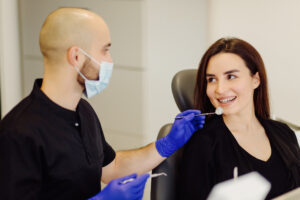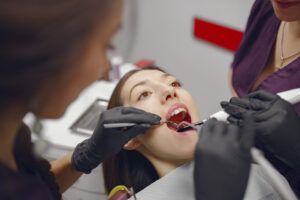Sleep quality depends on many factors, but one often-overlooked factor is oral health. You read correctly – taking good care of your pearly whites could hold the key to better restful slumber for those dealing with sleep apnea challenges. In this blog, we’ll delve into this fascinating relationship between oral health and sleep apnea as we discover its correlation and discover how taking proper steps with regard to oral care can provide more restful slumber.
Understanding Sleep Apnea: A Brief Overview
Sleep apnea can be a challenging condition to diagnose and understand, with breathing frequently stopping and starting during sleep, disrupting your cycle. Although factors like weight, age, genetics and oral health all play a role, could your dental hygiene be an influencing factor?
A Shocking Connection
Your dentist might not be your go-to source when it comes to sleep apnea, but the relationship is much deeper than you realize. A primary contributor could be oral health issue such as Obstructive Sleep Apnea (OSA). OSA occurs when muscles in the back of throat relax excessively causing airway obstruction and decreasing oxygen supply to brain.
As far as oral health goes, how does this relate? Well, take this into consideration: an improperly aligned jaw may contribute to OSA development. In addition, crooked or overcrowded teeth could play a part in creating an environment conducive to OSA. Therefore, having regular dental check-ups not only guarantees sparkling smiles, but also assures restful nights’ rest.
Snoring, Oral Health and Sleep Apnea
Snoring may seem harmless at first, but it could be an indicator that something is amiss with your oral health. Snoring occurs when airflow becomes partially restricted, producing those familiar and sometimes comical sounds. While occasional snoring is normal, loud and persistent snoring could indicate sleep apnea.
If you find yourself sawing logs every night, it might be time to visit your dentist. He or she can assess your oral health, identify any potential issues and suggest appropriate measures that could improve breathing and reduce sleep apnea risk.
Maintain Oral Health to Achieve Better Night Sleep
Now that we understand the connection, let’s discuss preventive measures. Brushing, flossing and dental check-ups aren’t just essential to maintaining a beautiful smile; they may also contribute to better sleep hygiene. Your dentist may suggest orthodontic treatments to address misalignments that compromise oral health; these could reduce sleep apnea symptoms as well.
At its heart, the road to good night’s rest may begin at your dentist’s office. By prioritizing oral health and investing in radiant smiles, not only are you investing in beautiful oral aesthetics but also creating an environment which promotes restful slumber while decreasing sleep apnea risk. Sweet dreams await – making this investment in yourself and others both worthwhile!
Photo by Connor Wilkins on Unsplash





